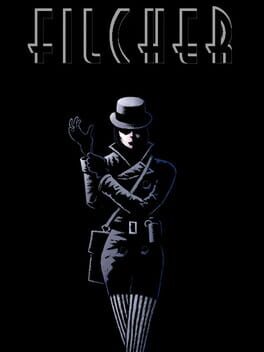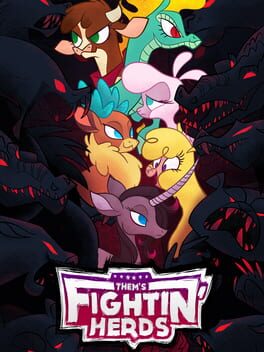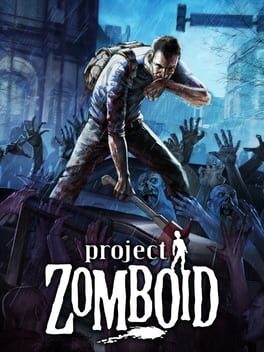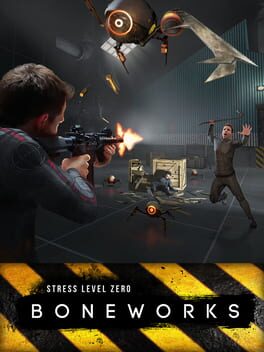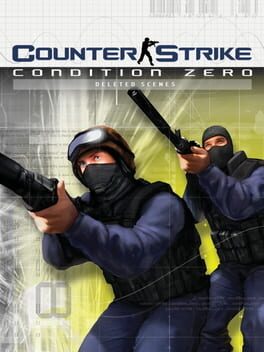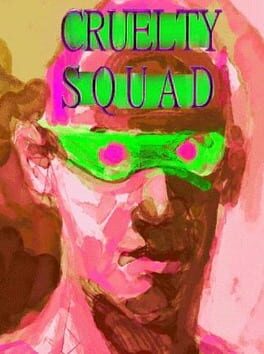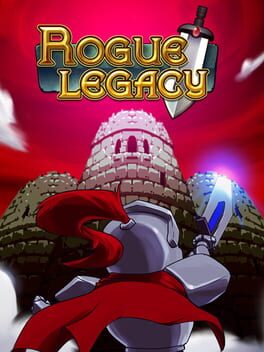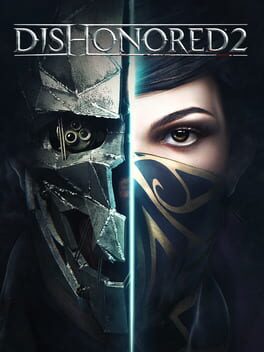Havneby
1998
2021
Filcher's a decent Thief clone, that plays well, but has some hiccups one must consider.
There are some great positives here, such as the art style, movement, and the satisfaction of playing well. The game doesn't hold your hand, nor does it punish you unnecessarily. There's a great mix of surfaces, meaning you'll never feel stuck in a situation where you cannot possibly stay quiet or unseen. Of course, that comes with a catch. The levels are short, ranging from 5-30 minutes, depending on your familiarity and method of going through them. This shortness is fine, but you're not allowed to save throughout. This means you could lose up to half an hour of progress because you're lacking a resource, or simply get unlucky. That means going through the exact same routine repeatedly for no reason at all. At times this increases the tension and forces you to play more safely, at other times it leaves you dead in the water.
The guard's AI is simple and easy to read. Make a sound or get spotted? They'll come running. However, an unfortunate choice was to make the guards know your exact position when you hit them with a sleeping dart. This means that you'll have to bugger off for a little bit and hide. Not even staying in the dark will help you, as they will be able to spot you regardless. Once you know of this mechanic it's not too bad to deal with, but annoying regardless. There's already heavy bullet drop, combined with a slow projectile speed on the darts. Adding in that additional element feels like a poor choice. Another mechanic is knocking the guards out with a blackjack. This mostly works, so long as you're doing it from behind, but the game's otherwise excellent artstyle is a hinderance here. It can be difficult to judge precisely when you're able to blackjack the guard, due to the billboard sprites used to represent them. This is especially true while they're flashbanged, as they will randomly swap directions. If you go for a hit while their back is turned, they might suddenly swap to a forwards-facing sprite and get knocked out of the stun, allowing them to attack you.
Returning to the movement for a moment, there is one key element that feels missing. That is mantling. Seeing as Filcher wears its inspirations on its sleeve, it should come as no surprise that all the mechanics from Thief 1 and 2 are included. However, this doesn't include mantling. It's hard to feel like a master thief when a small desk is enough to get in your way, much less a chair. The level design, however, does reflect this, and there's never a moment where you feel ripped off by the inability to mantle. The sliding mechanic is a welcome addition as well, allowing you to build up a sprint on more silent surfaces before sliding past the noisy marble and metal. This sliding is also crucial to catching up with guards in order to blackjack them, and it feels great every time.
The artstyle is quite excellent and feels very well-defined. A sort of comic book noir aesthetic, which is allowed to shine through the harsh shadows. This benefits gameplay as well, as you're never in doubt about which areas are in the dark. There were a couple instances where the harsh shadows tricked me into believing there was a space to hide, when it was simply a shadow-cast wall. Besides that, and the issues with knowing when I can attack enemies, the 2.5D aesthetic works well for me. Though, the viewmodels could use a little added polish as they felt quite small and unrefined.
The story is quite simple, but it works out well. It tells you all you need to know about the Fensbrook Filcher, and there's notes strewn around that help to build this world of corruption and greed.
Each map felt like its corridors had a purpose, though the basic textures gave each map less of a unique identity. The designs were simple and intuitive, and even on a first playthrough, so long as I'd survived, I got my bearings. This was quite pleasant, as anyone who's read my Thief: Gold review will know that I detest the level design in that game.
Despite my grievances, and the frustrations that I had with the last level, precisely due to the lack of a manual save, I enjoyed my time with Filcher. I do hope that Johan continues developing games, and I look forward to a potential sequel (though hopefully with manual saves and a mantling mechanic). For a single person's efforts, Filcher is a charming run-through that's worth the low price tag. Especially worth it if you're craving a nice thief-like game to spend some hours on.
There are some great positives here, such as the art style, movement, and the satisfaction of playing well. The game doesn't hold your hand, nor does it punish you unnecessarily. There's a great mix of surfaces, meaning you'll never feel stuck in a situation where you cannot possibly stay quiet or unseen. Of course, that comes with a catch. The levels are short, ranging from 5-30 minutes, depending on your familiarity and method of going through them. This shortness is fine, but you're not allowed to save throughout. This means you could lose up to half an hour of progress because you're lacking a resource, or simply get unlucky. That means going through the exact same routine repeatedly for no reason at all. At times this increases the tension and forces you to play more safely, at other times it leaves you dead in the water.
The guard's AI is simple and easy to read. Make a sound or get spotted? They'll come running. However, an unfortunate choice was to make the guards know your exact position when you hit them with a sleeping dart. This means that you'll have to bugger off for a little bit and hide. Not even staying in the dark will help you, as they will be able to spot you regardless. Once you know of this mechanic it's not too bad to deal with, but annoying regardless. There's already heavy bullet drop, combined with a slow projectile speed on the darts. Adding in that additional element feels like a poor choice. Another mechanic is knocking the guards out with a blackjack. This mostly works, so long as you're doing it from behind, but the game's otherwise excellent artstyle is a hinderance here. It can be difficult to judge precisely when you're able to blackjack the guard, due to the billboard sprites used to represent them. This is especially true while they're flashbanged, as they will randomly swap directions. If you go for a hit while their back is turned, they might suddenly swap to a forwards-facing sprite and get knocked out of the stun, allowing them to attack you.
Returning to the movement for a moment, there is one key element that feels missing. That is mantling. Seeing as Filcher wears its inspirations on its sleeve, it should come as no surprise that all the mechanics from Thief 1 and 2 are included. However, this doesn't include mantling. It's hard to feel like a master thief when a small desk is enough to get in your way, much less a chair. The level design, however, does reflect this, and there's never a moment where you feel ripped off by the inability to mantle. The sliding mechanic is a welcome addition as well, allowing you to build up a sprint on more silent surfaces before sliding past the noisy marble and metal. This sliding is also crucial to catching up with guards in order to blackjack them, and it feels great every time.
The artstyle is quite excellent and feels very well-defined. A sort of comic book noir aesthetic, which is allowed to shine through the harsh shadows. This benefits gameplay as well, as you're never in doubt about which areas are in the dark. There were a couple instances where the harsh shadows tricked me into believing there was a space to hide, when it was simply a shadow-cast wall. Besides that, and the issues with knowing when I can attack enemies, the 2.5D aesthetic works well for me. Though, the viewmodels could use a little added polish as they felt quite small and unrefined.
The story is quite simple, but it works out well. It tells you all you need to know about the Fensbrook Filcher, and there's notes strewn around that help to build this world of corruption and greed.
Each map felt like its corridors had a purpose, though the basic textures gave each map less of a unique identity. The designs were simple and intuitive, and even on a first playthrough, so long as I'd survived, I got my bearings. This was quite pleasant, as anyone who's read my Thief: Gold review will know that I detest the level design in that game.
Despite my grievances, and the frustrations that I had with the last level, precisely due to the lack of a manual save, I enjoyed my time with Filcher. I do hope that Johan continues developing games, and I look forward to a potential sequel (though hopefully with manual saves and a mantling mechanic). For a single person's efforts, Filcher is a charming run-through that's worth the low price tag. Especially worth it if you're craving a nice thief-like game to spend some hours on.
2013
Probably one of the best survival games out there at the moment. A steep learning curve, and frustrating endings makes the game all the more satisfying to improve at. Unfortunately it's held back by tough character levelling, as some of the more important stats such as fitness and strength are near-impossible to level without AFK farming them for hours on end.
I'd give it a go if you're interested in spending some hours alone. Give multiplayer a go if you dare, but be warned that it can have some nasty desync issues.
I'd give it a go if you're interested in spending some hours alone. Give multiplayer a go if you dare, but be warned that it can have some nasty desync issues.
2019
Clunky? Yes.
Horrible level design? Also yes.
The future of VR game design? No... not at all.
What Boneworks does well is to not fall for the trap of letting small-brained people play by including accessibility options like "teleportation". What they fail to understand is that gameplay that feels like the VR equivalent of moving a drunk Niko Bellic around also doesn't work well. The ability to jump, run, and climb around the environment is great, but attempting to navigate with the physics-based player controller turns it into a nightmare.
The gunplay is okay, and the variety of techniques opened up by the mechanics does make it an alright game to play for the first time, but fuck me if I'm going through it again to collect all the secrets just to unlock boring arenas.
At least Half-Life: Alyx has smooth locomotion because of this game.
Horrible level design? Also yes.
The future of VR game design? No... not at all.
What Boneworks does well is to not fall for the trap of letting small-brained people play by including accessibility options like "teleportation". What they fail to understand is that gameplay that feels like the VR equivalent of moving a drunk Niko Bellic around also doesn't work well. The ability to jump, run, and climb around the environment is great, but attempting to navigate with the physics-based player controller turns it into a nightmare.
The gunplay is okay, and the variety of techniques opened up by the mechanics does make it an alright game to play for the first time, but fuck me if I'm going through it again to collect all the secrets just to unlock boring arenas.
At least Half-Life: Alyx has smooth locomotion because of this game.
A stark reminder of classic, and quite racist, views of terrorism. Bad people doing bad things because they're bad. Every single faction had the classic machete guy who just runs at you, shotgun guys who run at you, smg guys, rifle guys, sniper guys. You name it, really.
The level design is functional, however it can be unclear where to go at times, and the limitations of the goldsrc engine don't allow for the various environments to shine quite as brightly as the devs most likely wished. Also, shoutout to Belfast skyscrapers. I'm sure you can guess what sort of faction inhabit that area.
The level design is functional, however it can be unclear where to go at times, and the limitations of the goldsrc engine don't allow for the various environments to shine quite as brightly as the devs most likely wished. Also, shoutout to Belfast skyscrapers. I'm sure you can guess what sort of faction inhabit that area.
2021
What is there really to say about Cruelty Squad that hasn't been said before? It's a fucked up nightmare misery of a game where you run through endless corridors of goopy, hyper bright, neon death. If you're able to stagger through the gunk you'll find yourself fighting an unpolished, messy, splash of violence. It's quite brilliant, really.
2013
Rogue Legacy is a pretty decent game, though it has some issues that turn it more into a slog. This specifically has to do with character progression.
Every time you enter the castle you must give away a percentage of the money you earned. This means that if you didn't get enough gold for any of the three types of upgrades you lose out. This wouldn't be such a big issue if not for how the progression worked. It's split into three categories. Stat enhancements, armour and magic runes. The game gives you plenty of runes, but surprisingly few armour pieces. These runes are unlocked for each type of armour, but the kinds of runes don't change. Combine this with only being able to equip one rune per piece and you have a system where you'll quickly find a rune setup that you enjoy and will never deviate from. This then makes gathering the rest of the runes feel useless.
With how rare armour pieces are, you'll be stuck with the same set for a while, which means that the only thing to spend money on are the stat upgrades. Which is where the game becomes a grind. You need higher stats to have a chance at getting past the harder zones, which means you have to survive longer so that you can make more gold. One of the most frustrating parts of the game is that it starts to give you small stat upgrades in place of the runes once you've unlocked them all. Which makes it even harder to unlock the already rare armour pieces.
The progression system therefore became something of a slog. Slowly getting enough money to upgrade my stats until I could reach the end. The mechanics are good, but didn't really hold up for the amount of grinding necessary.
Give it a shot if you're bored, but keep in mind that it could be less interesting than you think.
Every time you enter the castle you must give away a percentage of the money you earned. This means that if you didn't get enough gold for any of the three types of upgrades you lose out. This wouldn't be such a big issue if not for how the progression worked. It's split into three categories. Stat enhancements, armour and magic runes. The game gives you plenty of runes, but surprisingly few armour pieces. These runes are unlocked for each type of armour, but the kinds of runes don't change. Combine this with only being able to equip one rune per piece and you have a system where you'll quickly find a rune setup that you enjoy and will never deviate from. This then makes gathering the rest of the runes feel useless.
With how rare armour pieces are, you'll be stuck with the same set for a while, which means that the only thing to spend money on are the stat upgrades. Which is where the game becomes a grind. You need higher stats to have a chance at getting past the harder zones, which means you have to survive longer so that you can make more gold. One of the most frustrating parts of the game is that it starts to give you small stat upgrades in place of the runes once you've unlocked them all. Which makes it even harder to unlock the already rare armour pieces.
The progression system therefore became something of a slog. Slowly getting enough money to upgrade my stats until I could reach the end. The mechanics are good, but didn't really hold up for the amount of grinding necessary.
Give it a shot if you're bored, but keep in mind that it could be less interesting than you think.
What a great little game. Starts off really strong with the horror, but quickly loses the scare-factor as you meet the family. Loses some steam near the end, but the change of pace is welcome. Boss fights were mostly alright, though they weren't really that interesting.
Would recommend if you're interested in the Resident Evil franchise.
Would recommend if you're interested in the Resident Evil franchise.
2016
This review contains spoilers
Dishonoured 2 posits the important question: "What if you were framed for the murders of people who were calling for a democracy, but in a rude manner?" The answer, of course, is to continue with a monarchist system, but it's okay because you're a good guy and there's nothing wrong with the status quo at all (despite you being overthrown twice by people with bad intentions).
As a series Dishonoured seems convinced that the status quo is important to uphold, despite it being a monarchist system in which nobody has the right to vote on their leader. There are worker's unions, but because of how the government is set up they are often crushed with military force. By the end of the game, so long as you've gone the low chaos route, the main character reflects on their journey through Karnaca and speaks of taking an effort to pay attention to the injustices in the world. Now there are, of course, certain democratic institutions, but they seem reserved for the rich and powerful. The same rich and powerful who have been routinely condemned and shown to be nothing more than selfish egotists throughout the series. How then can you choose to uphold the status quo of monarchist rule? How is the answer not to institute democracy?
Gameplay wise the game is an improvement in almost all aspects. With a now wide variety of non-lethal methods for neutralising enemies the player isn't reliant on simply choking or using sleep darts to take combatants out. This allows for an aggressive, yet non-lethal gameplay style, which is great. My only complaint is that the mechanic for slipping under low obstacles seems to have weird detection issues that make it unnecessarily hard to get in through windows or the small hatches on the top of elevators. The introduction of black markets is a great way to add both persistent shops and interesting puzzles for the player to solve. Figuring out the solution to black markets is great, and makes the player feel clever. Beyond that, the inclusion of two playable characters allows the game to be enjoyed in four different ways. Not to mention the addition of new game plus, allowing you to mix up the playstyle with the other's abilities. Or even denying the outsider's gift entirely, allowing for a complete run without any powers at all.
Besides my complaints of what the game is telling the player, I don't find the story terribly egregious. The gist is that Delilah has been revived after Daud neutralised her (it doesn't seem clear which method is canonical), and has staged a coup on the capitol after smearing Corvo and Emily's names. What follows is you piecing together what happened and how to eliminate Delilah for good.
Interestingly there doesn't seem to be a lot of ethical dilemmas in taking out targets. One of the most interesting dilemmas is which group to support for Karnaca's future. Neither group seem particularly poorly fit, however. The Overseers are obviously evil religious zealots who use their power to enact martial law on the people, while the Howlers are a group of street thugs who kill and threaten those who deny them their will. Both choices seem like they'd have their positive and negative outcomes, but the ending keeps it vague.
Now, for the choices that actually matter in terms of ethical dilemmas. With Jindosh you cause irreparable brain damage, causing him to forget most memories. He's essentially reverted to the brain power of a small child. After performing this on him he begs for death, but it actually seems like he's enjoying life with a caretaker later on. This as evidenced by an audio recording on Abele's office during the grand palace mission.
With Abele you conspire with his body double so that you may trick the guards into believing that the real Abele is the body double, who has deluded himself into believing that he is the real one. This choice is possibly one of the most cruel the series has seen. You've essentially gaslit Abele into believing that his entire life is a lie. One could argue that he deserved it, but I'm not so sure.
Ashworth's non-lethal ending isn't so bad. All you do is revoke her supernatural connection to Delilah. Of course, for her this is devastating, but it doesn't seem like such a bad ending in comparison to Abele's.
Finally, we have Delilah's ending. You have to create a cursed rune to place on the throne so that she may be trapped permanently in her false world. It's unclear what specifically happens, but it would seem that she gets the ending she desired, just not how she intended it. Perhaps it's more cruel than I think, but it seems fine. An interesting thought though, is the question of whether she can come back again. What's different this time from the last? Is there not a precedent for some ex-witches to attempt to bring her back again? We see in Death of the Outsider that there are still witches left over from Ashworth's coven. She was, after all, stuck in a painting the first time around. What makes this second painting any different?
Only time will tell what comes of Dishonoured. Death of the Outsider seems like a definitive end to the series. A farewell to games that I have enjoyed profusely. Maybe that's for the best? What use would another Dishonoured game serve? Would it continue with Delilah or would it make up a new bad guy? Would it be a prequel? Showing Daud's previous exploits? Wouldn't that be boring though? He's obviously a killer up until Jessamine's death. We might never see another game in this series, but that's fine by me. All three games are important to me, despite the issues I have with the messages they put forth.
Thanks Dishonoured, Thishonoured.
As a series Dishonoured seems convinced that the status quo is important to uphold, despite it being a monarchist system in which nobody has the right to vote on their leader. There are worker's unions, but because of how the government is set up they are often crushed with military force. By the end of the game, so long as you've gone the low chaos route, the main character reflects on their journey through Karnaca and speaks of taking an effort to pay attention to the injustices in the world. Now there are, of course, certain democratic institutions, but they seem reserved for the rich and powerful. The same rich and powerful who have been routinely condemned and shown to be nothing more than selfish egotists throughout the series. How then can you choose to uphold the status quo of monarchist rule? How is the answer not to institute democracy?
Gameplay wise the game is an improvement in almost all aspects. With a now wide variety of non-lethal methods for neutralising enemies the player isn't reliant on simply choking or using sleep darts to take combatants out. This allows for an aggressive, yet non-lethal gameplay style, which is great. My only complaint is that the mechanic for slipping under low obstacles seems to have weird detection issues that make it unnecessarily hard to get in through windows or the small hatches on the top of elevators. The introduction of black markets is a great way to add both persistent shops and interesting puzzles for the player to solve. Figuring out the solution to black markets is great, and makes the player feel clever. Beyond that, the inclusion of two playable characters allows the game to be enjoyed in four different ways. Not to mention the addition of new game plus, allowing you to mix up the playstyle with the other's abilities. Or even denying the outsider's gift entirely, allowing for a complete run without any powers at all.
Besides my complaints of what the game is telling the player, I don't find the story terribly egregious. The gist is that Delilah has been revived after Daud neutralised her (it doesn't seem clear which method is canonical), and has staged a coup on the capitol after smearing Corvo and Emily's names. What follows is you piecing together what happened and how to eliminate Delilah for good.
Interestingly there doesn't seem to be a lot of ethical dilemmas in taking out targets. One of the most interesting dilemmas is which group to support for Karnaca's future. Neither group seem particularly poorly fit, however. The Overseers are obviously evil religious zealots who use their power to enact martial law on the people, while the Howlers are a group of street thugs who kill and threaten those who deny them their will. Both choices seem like they'd have their positive and negative outcomes, but the ending keeps it vague.
Now, for the choices that actually matter in terms of ethical dilemmas. With Jindosh you cause irreparable brain damage, causing him to forget most memories. He's essentially reverted to the brain power of a small child. After performing this on him he begs for death, but it actually seems like he's enjoying life with a caretaker later on. This as evidenced by an audio recording on Abele's office during the grand palace mission.
With Abele you conspire with his body double so that you may trick the guards into believing that the real Abele is the body double, who has deluded himself into believing that he is the real one. This choice is possibly one of the most cruel the series has seen. You've essentially gaslit Abele into believing that his entire life is a lie. One could argue that he deserved it, but I'm not so sure.
Ashworth's non-lethal ending isn't so bad. All you do is revoke her supernatural connection to Delilah. Of course, for her this is devastating, but it doesn't seem like such a bad ending in comparison to Abele's.
Finally, we have Delilah's ending. You have to create a cursed rune to place on the throne so that she may be trapped permanently in her false world. It's unclear what specifically happens, but it would seem that she gets the ending she desired, just not how she intended it. Perhaps it's more cruel than I think, but it seems fine. An interesting thought though, is the question of whether she can come back again. What's different this time from the last? Is there not a precedent for some ex-witches to attempt to bring her back again? We see in Death of the Outsider that there are still witches left over from Ashworth's coven. She was, after all, stuck in a painting the first time around. What makes this second painting any different?
Only time will tell what comes of Dishonoured. Death of the Outsider seems like a definitive end to the series. A farewell to games that I have enjoyed profusely. Maybe that's for the best? What use would another Dishonoured game serve? Would it continue with Delilah or would it make up a new bad guy? Would it be a prequel? Showing Daud's previous exploits? Wouldn't that be boring though? He's obviously a killer up until Jessamine's death. We might never see another game in this series, but that's fine by me. All three games are important to me, despite the issues I have with the messages they put forth.
Thanks Dishonoured, Thishonoured.
2016
I love Quake Live, but do you know what else I love? Ratz Instagib 2.0.
Sometimes all you want is a game with rocket jumping, full air control and instagib railguns. That's exactly what Ratz Instagib 2.0 gives you and nothing else. That and a map editor that allows you to make your own Ratz Instagib 2.0 maps to frag your friends on.
Storywise it's actually quite deep. After a catastrophic earthquake that shattered the earth's core; humanity fled underground and were instantly transformed into tiny Ratz (Instagib 2.0). After figuring out that they literally could not die anymore, the humans (now Ratz (Instagib 2.0)) decided to wage an endless war for fun and profit.
Fat Cats (another mutation of humans) control the rats (humans (now Ratz (Instagib 2.0))) and exploit their warfare for national sport. And, due to the fact that the warriors (rats (humans (now Ratz (Instagib 2.0)))) are a smaller size they didn't even have to build new arenas. All they had to do was strap a jetpack to the little wannabe astronaut soldiers (warriors (rats (humans (now Ratz (Instagib 2.0))))) and let them loose in arenas.
The story follows Alec (a wannabe astronaut soldier (rat (warrior (human (now Rat(z (Instagib 2.0)))))) who ventures out into the world of Ratz Instagib( 2.0)bing to make a name for himself. Of course, it's quite dramatic, but saying anymore would be spoiling it 😳
Please buy & play this game.
Sometimes all you want is a game with rocket jumping, full air control and instagib railguns. That's exactly what Ratz Instagib 2.0 gives you and nothing else. That and a map editor that allows you to make your own Ratz Instagib 2.0 maps to frag your friends on.
Storywise it's actually quite deep. After a catastrophic earthquake that shattered the earth's core; humanity fled underground and were instantly transformed into tiny Ratz (Instagib 2.0). After figuring out that they literally could not die anymore, the humans (now Ratz (Instagib 2.0)) decided to wage an endless war for fun and profit.
Fat Cats (another mutation of humans) control the rats (humans (now Ratz (Instagib 2.0))) and exploit their warfare for national sport. And, due to the fact that the warriors (rats (humans (now Ratz (Instagib 2.0)))) are a smaller size they didn't even have to build new arenas. All they had to do was strap a jetpack to the little wannabe astronaut soldiers (warriors (rats (humans (now Ratz (Instagib 2.0))))) and let them loose in arenas.
The story follows Alec (a wannabe astronaut soldier (rat (warrior (human (now Rat(z (Instagib 2.0)))))) who ventures out into the world of Ratz Instagib( 2.0)bing to make a name for himself. Of course, it's quite dramatic, but saying anymore would be spoiling it 😳
Please buy & play this game.
2013
This review contains spoilers
Bioshock Infinite dares to ask the question: Are the anti-racists actually as bad as the racists? There's also time travel and alternate universe shit that's mostly used as gameplay fluff until the end when they spend an awfully long time explaining an extremely basic concept to you.
The combat mechanics are okay, although throughout the entire game I tended to stick to two vigours and two guns, because the game doesn't facilitate the need to swap to others.
The combat mechanics are okay, although throughout the entire game I tended to stick to two vigours and two guns, because the game doesn't facilitate the need to swap to others.
2020
Having finished Spelunky 2 I've found myself enjoying its mechanics to quite a degree. While it might be weird to think about, Spelunky 2 improves on everything Spelunky HD does and more. Not only are the controls more responsive, the art style has been refined and the level-chunk design improved vastly. Going back to HD after having played 2 is a shock, to be honest. I finished it after about 104 hours, but I'm sure your mileage will vary a lot. Still, there's more content to be had, so I'll still be going back.
If you've never played Spelunky this is a good starting point, however it's more punishing straight out of the gate, so be prepared for a proper challenge.
If you've never played Spelunky this is a good starting point, however it's more punishing straight out of the gate, so be prepared for a proper challenge.
1991

